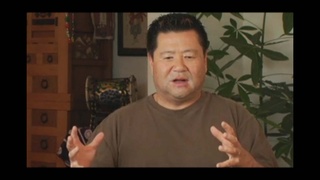Interviews
Context affects meaning
There’s a kimono, and the label under it says, It's a Japanese woman's article of clothing. And indeed, that’s what it is. But, what I’m saying is that if the Sansei woman wears that, she’s making a statement. She’s saying, I am of Japanese heritage. It’s a symbol of identity for her. Now, in Japan the women don’t wear kimono as a symbol of identity. And the only way you’re going to understand that is if you look at that object that hasn’t changed a thread, in the context of the Japanese American experience, in which they have obon and the Sansei woman wears it. And that is another concept that is now attached to that kimono that wasn’t there before. And if we’re not going to explain it that way, what the hell’s the use of having that. So context and perspective is very important in what we do.
Date: January 7, 2004
Location: California, US
Interviewer: Art Hansen
Contributed by: Watase Media Arts Center, Japanese American National Museum.
Explore More Videos

Heightened awareness of identity as a Japanese American
(b. 1955) Lawyer

Reasons for conformity and competitiveness in Gardena, California
(b. 1946) Lawyer







Advantages of being Nikkei (Spanish)
(b. 1950) Nisei Chilean, Businessman


Childhood shame for being Nikkei in Enumclaw, Washington
Judge, only Japanese American to serve on CWRIC.

On the Impact of the Camp Experience
(b. 1942) The first Asian American woman judge

Thoughts on the term, "Nikkei"
(b. 1949) Musician and arts educator and adminstrator.

Post-redress future of Japanese Americans
Judge, only Japanese American to serve on CWRIC.

